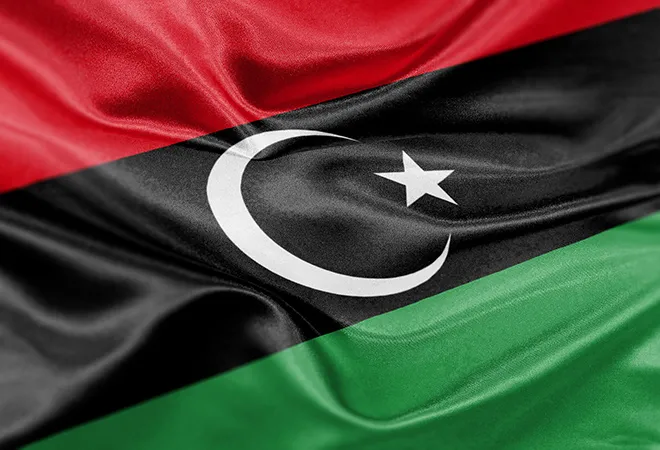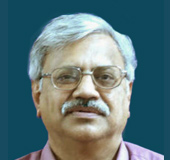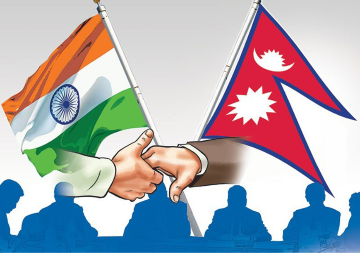
Clouds of uncertainty continue to hang over Libya’s transition towards democracy. The Libyan Parliament, based in Tobruk and dominated by the eastern region, chose Fathi Bashagha as Prime Minister in February 2022. Subsequently, Bashagha’s new government was approved by the Parliament on 1 March 2022. However, the incumbent and interim United Nations-backed regime led by Abdul Hamid Dbeibah’s reluctance to hand over power to Bashagha is ripping Libya apart. The United Nations (UN) voiced concern over Bashagha’s appointment and held that Bashagha “fell short of expected standards”. In the midst of this deepening political crisis, Libya’s biggest oil field, the El-Shahara field, which produces 290,000 barrels a day, halted oil production and the protesters threatened to keep key export terminal closed. These dramatic developments are taking place when the oil prices are mounting as a result of the Russian invasion of Ukraine and the consequent imposition of sanctions against Russia. Incidentally, Libya has the biggest oil reserves in Africa, and the issues related to energy production have often led to armed conflicts in Libya. At this juncture, the rivalry between Bashagha and Dbeibah to seize governmental power can cause political instability and chaos in Libya. To surmount this impasse, a modicum of political stability can be established before conducting presidential elections.
In fact, 2.5 million voters of Libya were about to cast their votes but the presidential elections that were scheduled on 24 December, 2021, were postponed. Even if Dbeibah plans to hold the elections by June 2022, his own position itself is under challenge with the arrival of Bashagha. The inability of the various contending forces to stabilise Libyan polity and society has pushed Libya virtually into a state of quagmire. Moreover, Libya is strategically located in the eastern Mediterranean with rich reserves of oil and natural gas. Therefore, politically stable, democratic, and unified Libya can bring internal order and inspire investor confidence. However, establishing a stable polity in Libya is a distant dream. To place chaotic realities of the past decade in perspective, it would be worth reflecting on the internal and external dimensions of the civil war in Libya and unmask the quality of leadership offered by contending candidates for Libya’s Presidential office.
Political background
After the US-led North Atlantic Treaty Organisation (NATO) forces toppled the Muammar Gaddafi regime in October 2011, Libya’s fractious polity has often been characterised by centrifugal tendencies involving clashes between local warlords, tribal militias, diverse interest groups, and political leaders. The elections for General National Congress (GNC) of 2012 as well as the House of Representatives elections of 2014, marked by a low voter turnout of 18 percent, failed to bring about a stable democratic polity in Libya. Consequently, political circumstances had pushed Libya into the throes of civil war since mid-2014, which essentially represented a contest between the two parties. On the one hand, in western Libya the UN-backed Government of National Unity (GNU) that was led by Fayez al-Sarraj (2016-2021) had established full control over Tripoli, with firm support from Turkey and Qatar. While, on the other hand, General Khalifa Haftar who led the Libyan National Army (LNA) after 2015 had established his control over the eastern and southern parts of Libya. The LNA was functioning with Tobruk as its capital. Haftar also has had support from external powers such as Russia, Egypt, France, Saudi Arabia, and the United Arab Emirates (UAE). Treating resource-rich Libya as a gateway to Africa, each one of these external powers was pursuing its own policy towards Libya by taking into cognisance factors related to geopolitics involving maritime and energy security. The civil war also interrupted the oil supply and weakened the Libyan economy. Such interruptions in oil supply also affected all the parties involved in the conflict.
The inability of the various contending forces to stabilise Libyan polity and society has pushed Libya virtually into a state of quagmire.
Moreover, the civil war has contributed to 50,000 refugees and displaced 268,000 people. In February 2021, the UN-led mediation efforts through Libyan Political Dialogue Forum (LPDF) paved the way for change. Eventually, the contending forces in the Libyan civil war through UN-led 5+5 Joint Military Commission arrived at a historic ceasefire agreement in Geneva in October 2020. This development set the pace for transition towards democracy in Libya under the UN sponsorship. Surprisingly, the erstwhile rivals in the context of Libya such as Egypt and Turkey after their rapprochement had also endorsed the democratic transition in Libya.
Irrespective of the UN efforts to manage transition, without agreement over general rules amongst the competent bodies such as the Election Commission, Parliament’s Election Committee, and the fragmented judiciary, it became difficult to determine the list of eligible candidates in the presidential elections in Libya. Taking advantage of the ambiguity in the rules, the political leaders began to conveniently pursue their personal interests by flouting the rules. The manner in which political leadership in Libya has been muddling through the entire process of framing the Constitution and conducting elections certainly deserves a critical scrutiny.
Rising political contenders
To begin with, the new electoral laws were not passed by the Parliament but were merely ratified by the Speaker of the HoR, Aguila Saleh Issa, directly. A more accurate description of these laws could be decrees. The manner in which the laws were drafted made the executive organ extremely powerful. The Speaker, in his turn, ostensibly functioned as an ally of General Haftar. Haftar wanted to contest in the presidential election without losing the option of reverting to his military post if he lost the elections. Ironically, in November 2021, Aguila Saleh Issa himself announced his candidacy for the presidential elections.
Such opportunism as well as clash of interests will continue to draw external powers and forces to pursue their rivalries in the Libyan space and worsen the political crisis in Libya.
In contrast to Haftar and Aguila Saleh Issa, Dbeibah who was sworn in as Prime Minister of “all Libyans” in March 2021 in the Parliament at Tobruk to head the interim administration had a different role. Dbeibah has been a powerful businessman from the western city of Misrata. As interim head of the government, he was supposed to prepare the country for vote, unify institutions, dismantle militias, and gradually integrate the security forces. Since the security forces were operating from two parallel governments based in Tripoli as well as Tobruk during the civil war, a unified military force was the primary requirement to defend the territorial integrity and sovereignty of Libya. Moreover, Libya had a Tobruk-based Parliament and a Tripoli-based State Council. By ensuring the passage of the new constitutional arrangement, the interim government had to pave the way towards the establishment of the capital with major institutions in a unified Libya. While performing these assigned tasks, unsurprisingly, Dbeibah filed his candidacy to run for President in November 2021, despite being barred from standing in the elections according to the prevailing rules.
Dbeibah has been serving Libya since the last days of Gadhafi; his very strong business networks and enormous wealth can only be explained through massive corruption. In recent years, he has paid in millions to lobbyists in the US and France to raise his image and amass even greater wealth. To further fortify his position, whenever he has perceived a threat to his position, Dbeibah has relied on announcing and spending on populist plans such as helping people to buy lands and homes, raising salaries, and subsidising weddings. Last but not the least, Muammar Gaddafi’s son Saif al-Islam Gaddafi, who was wanted by International Criminal Court (ICC), and was convicted in 2015 in absentia also registered his name as a candidate for the presidential office before the December 2021 elections. Initially he was disqualified by the competent authorities owing to the war crimes committed by him against humanity during the uprising more than 10 years ago. Once he was allowed to jump into the fray, Gaddafi declared that he wanted “to restore the lost unity of Libya”.
Conclusion
In a nutshell, the essence of Libyan quagmire could be placed thus: Bashagha’s appointment as Prime Minister is proving to be divisive since the incumbent Dbeibah is unwilling to hand over power to the new regime. The divisive nature of politics, in turn, has had its impact on oil production which can further weaken Libyan economy. The civil war that began after the fall of Gaddafi in 2011 was not confined to Libya because international forces such as the UN as well as external powers including France, Russia, Turkey, Egypt, the UAE, and Qatar got involved in the Libyan imbroglio. So far, the leadership in Libya has not prepared the Constitution that needs to be duly deliberated and approved by the majority in the Parliament. On the contrary, Aguila Saleh Issa, the Speaker of the House, not only merely ratified the Constitution but also decided to run for President. The UN too has gone ahead with the same Constitution. Other candidates such as General Haftar, Dbeibah, and Saif al-Islam Gaddafi have also thrown their hat in the ring. In substance, the unscrupulous role of contending leaders who are clamouring to occupy the top job has only added to political opportunism and the intense clash of interests amongst the candidates. Such opportunism as well as clash of interests will continue to draw external powers and forces to pursue their rivalries in the Libyan space and worsen the political crisis in Libya.
The views expressed above belong to the author(s). ORF research and analyses now available on Telegram! Click here to access our curated content — blogs, longforms and interviews.




 PREV
PREV


